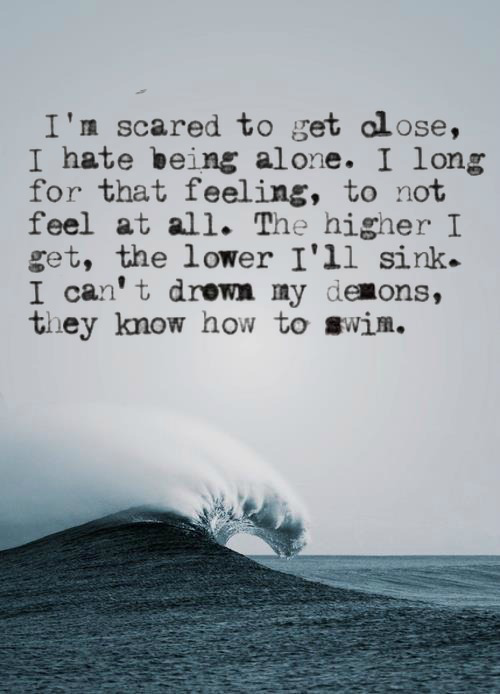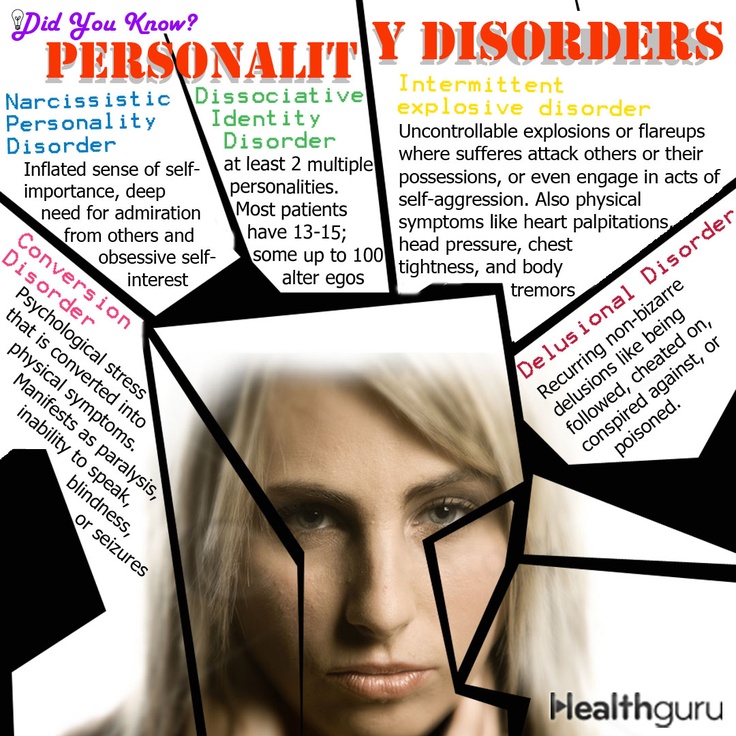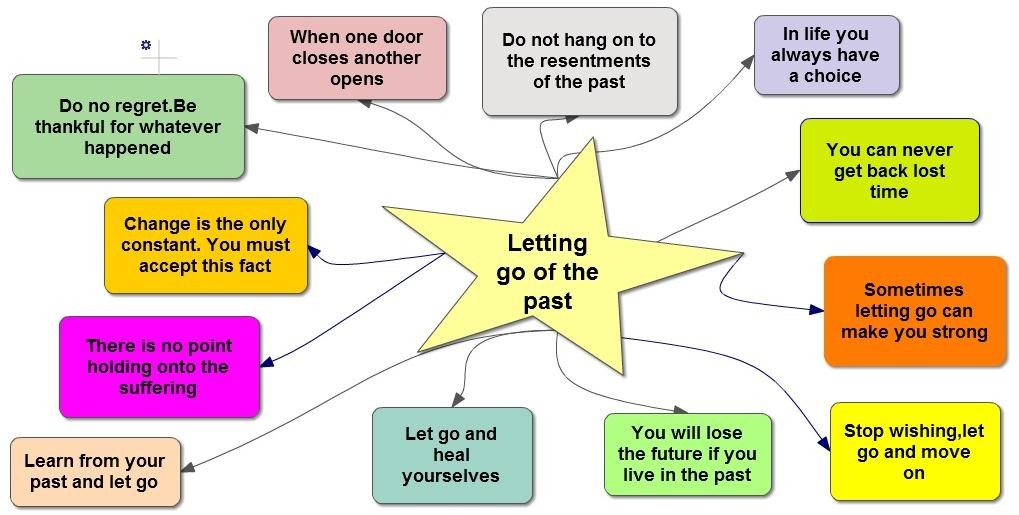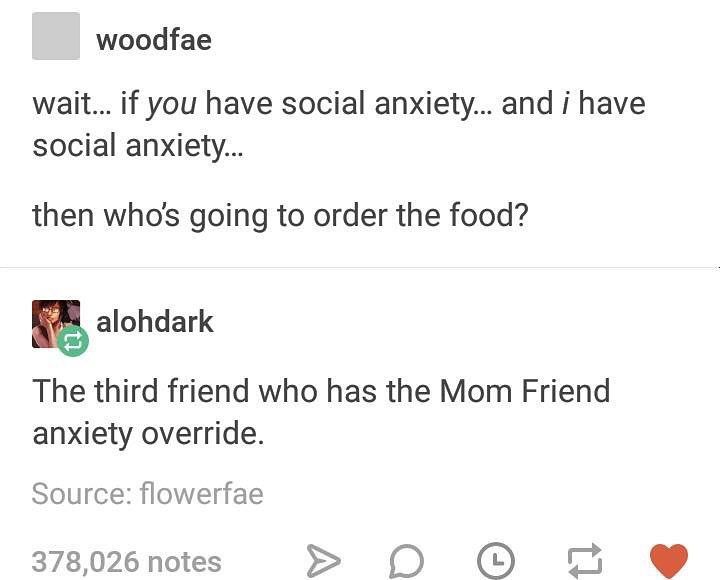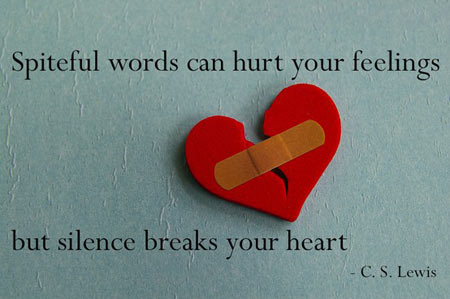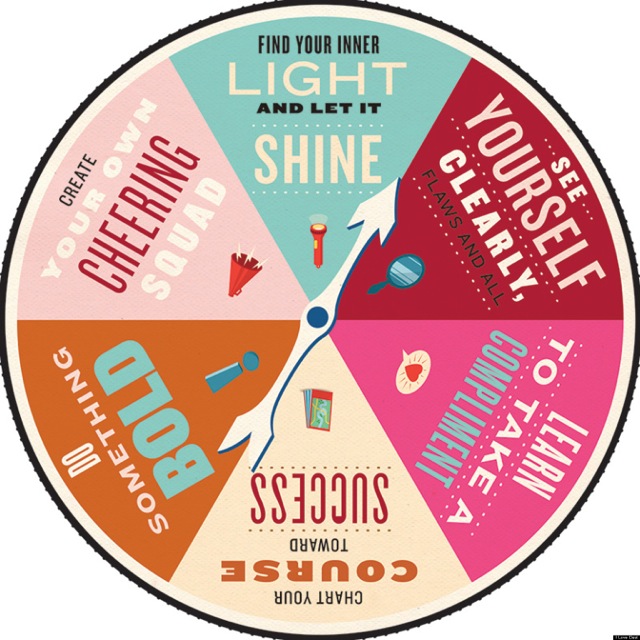Feeling the hate
What makes hate a unique emotion – and why that matters
Imagine John, an honest employee whose colleague is a bigot and a harasser of women. From their first interaction, John didn’t like the way his coworker made inappropriate jokes. He recently called John ‘too soft’ after John declined his proposal to steal from their company to make some ‘extra money’. While he might never openly admit to hating anyone, John privately thinks to himself: This guy represents the worst in our society; I hope something bad happens to him and he goes away; I hate him.
What does it mean to say that someone like John hates his coworker, rather than just disliking or feeling contempt for him? People claim to ‘hate’ all sorts of things in their daily lives: drama, traffic jams, math, broccoli, Mondays. But if they are asked about other people, especially specific individuals and groups, feelings of hate are usually not disclosed so easily.
Hate is a heavy subject. When trying to understand prejudice, terrorism or genocide, people cannot help but think of hate as one of the primary causes.
Currently, there is no consensus among scholars about hate’s nature. Hate has been described widely as an emotion, but also as an attitude or a sentiment. Some scholars think that hate is an extreme version of anger or dislike; some describe hate as a blend of emotions such as anger, contempt and disgust; and others regard hate as a distinct and unique feeling. Theories also diverge in their descriptions of hate’s antecedents, triggers, functions and behavioural outcomes. Nevertheless, people confidently talk about hate speech, hate crime, or anti-hate campaigns.
What we do know is that hate is intense and enduring, and it seems to be based on a view of its targets as essentially bad and threatening. For example, when the Hutus slaughtered the Tutsis in the Rwanda genocide of 1994, the hate they experienced appears to have been based on the perception that the Tutsis were essentially evil and that they should be eliminated. The hate embodied by the Ku Klux Klan and other extremist groups often goes back decades or longer, transcending generations and sometimes lying dormant until finding a new trigger. We also know that people can hate close individuals such as family members, friends or romantic partners.
The hate embodied by the Ku Klux Klan and other extremist groups often goes back decades or longer, transcending generations and sometimes lying dormant until finding a new trigger. We also know that people can hate close individuals such as family members, friends or romantic partners.
Unlike anger, hate seems to be aimed not at the targets’ behaviours, per se, but at the targets themselves
Still, there is a lack of empirical research examining hate’s distinctive features, partly because studying hate is methodologically difficult and research ethics boards are not very happy about inducing feelings of hate in study participants. So I recently set out to investigate how the feeling of hate is different from dislike, anger, contempt and disgust, conducting a series of studies with Jan-Willem van Prooijen and Paul Van Lange at the Vrije Universiteit Amsterdam. We asked participants in the US to anonymously describe their own experiences of feeling each of these negative emotions, either toward an individual or a group. They rated the emotional intensity and duration of each experience, how threatening they perceived the individual or group to be, and other dimensions of the experience. Under the condition of anonymity, most people openly described individuals and groups they hate – often with a cathartic level of detail – suggesting that experiencing hate is more frequent in people’s lives than we might imagine.
They rated the emotional intensity and duration of each experience, how threatening they perceived the individual or group to be, and other dimensions of the experience. Under the condition of anonymity, most people openly described individuals and groups they hate – often with a cathartic level of detail – suggesting that experiencing hate is more frequent in people’s lives than we might imagine.
Our key finding is that, across the different dimensions, hate seems most distinct from dislike and anger, somewhat less distinct from contempt, and least distinct from disgust. For instance, compared with dislike, anger or contempt (but not disgust), participants rated their experiences of hate as more intense. And compared with dislike or anger toward specific individuals, they rated their experiences of hate as more enduring, perceived hated individuals as more threatening to society, and expressed a greater inclination to engage in behaviours such as confronting, harming or offending them. People also perceived hated individuals as more threatening to them personally than individuals toward whom they felt other negative emotions. These findings suggest that hate is a distinct feeling, but also that it shares some features with the other emotions, especially with contempt and disgust.
People also perceived hated individuals as more threatening to them personally than individuals toward whom they felt other negative emotions. These findings suggest that hate is a distinct feeling, but also that it shares some features with the other emotions, especially with contempt and disgust.
What explains these differences between hate and other negative emotions? The answer might lie partly in the reasons for which each emotion has evolved, and in the particular ways in which people see the targets of each emotion. Negative emotions are thought to have evolved as goal-oriented mechanisms that help individuals to coordinate their physiological, cognitive and behavioural systems for dealing with different threats. Dislike is a broad negative affective state that guides people’s preferences. When people dislike someone, that does not mean they necessarily wish to harm that person. Rather, they simply prefer not to be near them. Although hate, too, is a negative affective state, it implies that one really wants the other person out of one’s life completely (as in the case of John, who wishes his coworker would disappear), and might be willing to take steps to make that happen.
When we compare hate with anger, contempt and disgust, the differences are a bit more nuanced. People get angry when others misbehave, and the anger is aimed at changing the behaviour of the misbehaving person in the short-term. For example, if somebody lights a cigarette in a non-smoking area, people around might get angry, and their overt expression of anger (via direct remarks or body language) could induce the smoker to put out the cigarette or leave. However, unlike anger, hate seems to be aimed not at the targets’ behaviours, per se, but at the targets themselves (ie, who they are or what they represent). Hate’s goal is therefore not to change the target’s behaviours but to get rid of the targets, based on the perception that they are essentially bad and unchangeable. That is likely one reason why people tend to experience hate for significantly longer periods of time than anger, which often dissipates relatively quickly once the unwanted behaviours cease.
Hate seems to be related to fundamental and non-negotiable disagreements in core moral beliefs
Contempt and disgust are, like hate, focused on an individual’s or group’s disposition. Contempt consists of ‘looking down’ at others or viewing them as inferior, and its goal is to derogate and exclude them. Disgust is evoked when people appraise others as immoral or undesirable, and the goal of disgust is to avoid or distance oneself from them. When people feel hate, however, the targets are not just perceived as inferior, immoral or undesirable, although they might be perceived as all of these. There is something else, something about them that motivates an especially strong reaction, to the point of wanting to eliminate them physically or symbolically (such as by eliminating a group’s symbols, in the case of intergroup hate), rather than only excluding or avoiding them.
Contempt consists of ‘looking down’ at others or viewing them as inferior, and its goal is to derogate and exclude them. Disgust is evoked when people appraise others as immoral or undesirable, and the goal of disgust is to avoid or distance oneself from them. When people feel hate, however, the targets are not just perceived as inferior, immoral or undesirable, although they might be perceived as all of these. There is something else, something about them that motivates an especially strong reaction, to the point of wanting to eliminate them physically or symbolically (such as by eliminating a group’s symbols, in the case of intergroup hate), rather than only excluding or avoiding them.
So, what is it that people find so threatening about the targets of their hate? In a set of studies currently under review, we tested whether hate was triggered to a higher degree by threats to people’s resources and goals or by threats to their values and worldviews. We found that participants expressed significantly more hate toward individuals endorsing views that were opposite to their own on issues such as abortion, the legalisation of drugs, or same-sex marriage than toward individuals who blocked their goals and caused them to lose a reward. This could indicate that at least part of what people find particularly aversive about their hate targets is the perception that those individuals or groups endorse the opposite of what they believe is fair, noble and right, or their idea of what is a good life or a good society.
This could indicate that at least part of what people find particularly aversive about their hate targets is the perception that those individuals or groups endorse the opposite of what they believe is fair, noble and right, or their idea of what is a good life or a good society.
These beliefs are part and parcel of people’s identities, which adds an extra, threatening ingredient. People can dislike aspects of a person, or get temporarily angry at their behaviours, but hate seems to be related to fundamental and non-negotiable disagreements in core moral beliefs. While these disagreements could be present to some degree when people feel emotions such as contempt and disgust (helping to explain their closeness to hate), when people feel hate, these moral differences might be taken as personal threats, based on the importance of people’s values and beliefs to their sense of who they are. This could fuel a heightened emotional experience and prepare individuals for attacking rather than avoiding their targets.
Having a clear idea of what hate means and what its dynamics are is essential for identifying and responding to it. For instance, political ideologies that capitalise on identity threats, or on the supposedly evil character of certain groups, might be instilling much more than anger among followers – sowing the seeds for long-term aggression and fostering social division. Policymakers who are conscious of this might make stronger efforts to combat the spread of hate-triggering narratives and raise awareness among citizens. A clearer conceptualisation of hate might also, by extension, contribute to a better understanding of related concepts such as hate speech or hate crime, providing tools for legal actions or anti-hate initiatives. There is much more to learn about this strong negative emotion, but we are developing a better sense of what, in fact, it means to feel hate.
Hate - Emotion Typology
The intense feeling when you think about a bad person who is doing very bad things. You would want something bad to happen to this person.
You would want something bad to happen to this person.
You feel hate for a person whom you think is inherently bad and capable of doing bad things1. For example, you may feel hate for someone who has deliberately hurt you or a loved one in the past, for someone who has gravely betrayed your trust, or someone who has deeply harmed your self-identity.
Among all negative emotions, hate is probably the most infamous one2. It is often seen as a purely destructive emotion that we would be better without. Although it does often do more bad than good, hate can be a functional response in some cases, as it drives us to avoid or banish certain people based on their actions.
Unlike anger-emotions, hate is directed at a whole person rather than a specific action or event. It involves the belief that the other person is inherently bad or evil, and that there is little to no chance that this could change. This belief is usually not established from a single action, but a pattern of behavior. Furthermore, because you think this person is bad beyond change, you believe there is no point in any constructive approach. Rather, you just wish something bad would happen to them, or at least, that they would disappear from your life. Although hate can definitely lead to violent behavior, this is not necessarily the case, depending on the person and the situation. Often, someone will just avoid the hated person. If that is not possible, for example, because they work closely together, other strategies are used to create psychological distance
1.
Furthermore, because you think this person is bad beyond change, you believe there is no point in any constructive approach. Rather, you just wish something bad would happen to them, or at least, that they would disappear from your life. Although hate can definitely lead to violent behavior, this is not necessarily the case, depending on the person and the situation. Often, someone will just avoid the hated person. If that is not possible, for example, because they work closely together, other strategies are used to create psychological distance
1.
Hate can also be directed towards groups, a form that is often actively stimulated in wartime3. Hating the enemy can relieve feelings of guilt for one’s own wrongdoings.
The word ‘hate’ is subject to some inflation in everyday use, as it is much more often used than the emotion actually occurs. For instance, someone may say he ‘hates’ a type of music, when he merely dislikes it, or that he hates a colleague, when she merely annoys him.
In the comic, Murphy finds out that his colleague Patrick, who earlier asked him to trust him with his presentation, has been going behind his back. To add insult to injury, he has been actively lobbying to cut back on Murphy’s department.
“He is just a horrible person.”
“I hope I’ll never have to see her again.”
Hate & Contempt
Contempt and hate are both negative evaluations of a person. For example, a group of soldiers may feel both contempt and hate towards a fellow soldier who betrayed them and defected to the other side. The important difference is that hate is an evaluation that someone is evil or dangerous, whereas contempt judges someone to be inferiorX. In the example of the soldiers, the contempt is directed at the defected soldier’s lack of loyalty and patriotism, while the hate is directed at the fact that the soldier puts his comrades at danger. Someone can feel contempt for a very lazy person, but not hate him, because he poses no threat. Similarly, someone can feel hate for a tough competitor, as they pose a threat, but not feel contempt, because they are not seen as inferior.
Similarly, someone can feel hate for a tough competitor, as they pose a threat, but not feel contempt, because they are not seen as inferior.
Hate & Anger
When you hate a person, you are likely to also be angry with them. However, the opposite is often not true. For example, a father can be angry with his children, but this does not mean that he hates them. An important difference is that anger evaluates someone’s action (you did something bad), whereas hate evaluates and entire person (you are bad). This also means that anger is usually temporary: if the person has apologized or if they have changed their behavior, there is no need to keep being angry. Hate, on the other hand, is more enduring. If you hate a person, you are convinced that they are beyond improvement, so it will likely last a long time, if not forever.
90,000 anger and hatred: what is it and how to cope with themInstructions for survival
Text:
Stepan Balmond
Editor:
Katya Klentieva
March 12, 2022 10:13
Unpleasant events can cause anger. Often we also experience hatred, especially towards what we see as the cause of failure. We learned from psychologists why these feelings actually appear and how you can deal with them.
Often we also experience hatred, especially towards what we see as the cause of failure. We learned from psychologists why these feelings actually appear and how you can deal with them.
What are anger and hatred? nine0018
Anger is often confused with anger, as it is one of the manifestations of aggression. Here is what Olga Viktorova, a psychologist at the DocMed and DocDeti evidence-based clinic network, says about this: “Anger is more intense than anger and is expressed through facial expressions, gestures and words. This is a passive emotion: people do nothing, but only express their attitude . Anger more often implies actions aimed at changing the situation. Viktorova also emphasizes that anger is one of the basic human emotions. This is the basis for survival when the "fight, flight or freeze" mechanism is activated. nine0003
According to the expert, the trigger for anger can be a subjective sense of danger and a desire to protect one's boundaries.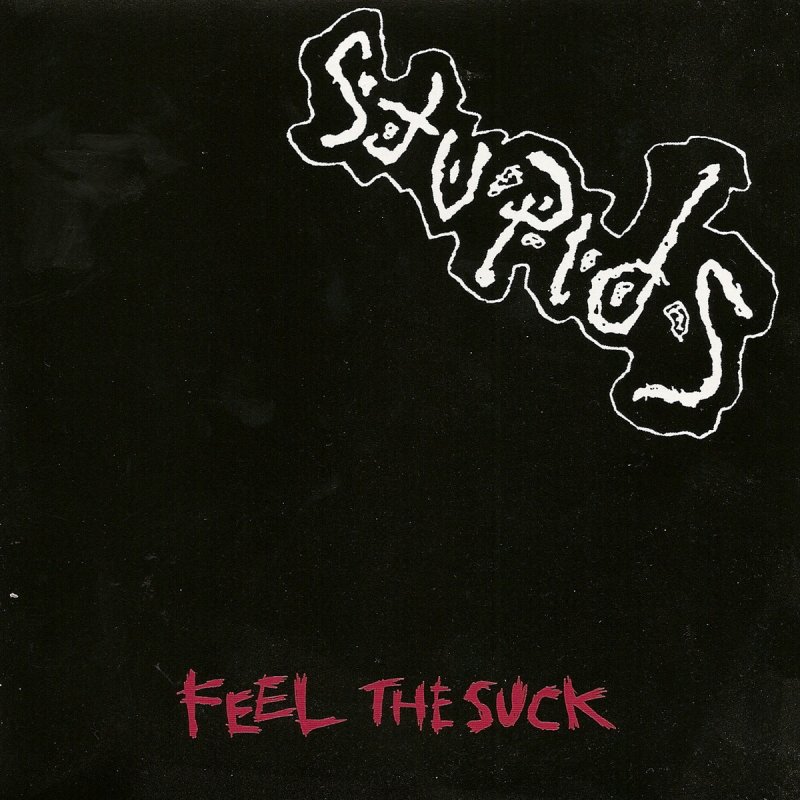 “We feel that we have been treated unfairly or wrongly. For example, we believe that during rush hour people should respect our borders, but they press against us from all sides. If we stand and swear under our breath, as all this is fed up, this is anger. It may seem that the neighbors are noisy or someone looked at us the wrong way, although in reality everything can be normal. Speaking of anger, it is important to understand that the situation itself may not be as dangerous as we think. nine0003
“We feel that we have been treated unfairly or wrongly. For example, we believe that during rush hour people should respect our borders, but they press against us from all sides. If we stand and swear under our breath, as all this is fed up, this is anger. It may seem that the neighbors are noisy or someone looked at us the wrong way, although in reality everything can be normal. Speaking of anger, it is important to understand that the situation itself may not be as dangerous as we think. nine0003
Anger manifests itself in many different ways - from calmness to the strongest hatred. “Moreover, emotion can be directed by a person both outside and on himself. For example, in the form of direct violence against others or self-harm,” explains Olga Viktorova.
According to Nikita Prilepsky, a psychologist at the DocMed and DocDeti network of evidence-based medicine clinics, it is most correct to understand hatred as the most harmful and ineffective form of anger. It is based on the perception of the surrounding world, events or people. A person sees the object of his hatred as bad, immoral, dangerous, although such ideas are mainly formed on the basis of cognitive distortions. nine0003
A person sees the object of his hatred as bad, immoral, dangerous, although such ideas are mainly formed on the basis of cognitive distortions. nine0003
What is assertive behavior and how can it help?
Psychologists distinguish three types of behavior: submissive, aggressive and assertive, each of which has its own characteristics. Submissive, or, as it is called, passive, often implies gentleness, compliance, unwillingness to participate in conflicts and defend one's point of view. People prone to this behavior can often lose control of their own lives. They adapt to the situation and environment, put their own interests, values and desires below those of others in order to be comfortable. nine0003
People prone to aggressive behavior, on the contrary, put themselves above and can even suppress others for the sake of their desires and goals, manipulate them and provoke them into conflicts. The environment seems to become an object of attack, so this behavior is considered destructive: a hostile and rude attitude towards others is also used as a way to assert oneself.
Specialists consider assertive behavior to be a compromise. “In psychology, this is understood as a trait that is characterized by independence from assessments, external influences and the ability to regulate one’s own behavior,” explains psychologist Natalya Tsybina. In her opinion, the basis of such behavior lies not only in respect for oneself, but also for others. nine0003
When experiencing feelings of hatred, a person with assertive behavior skills is able to openly express his feelings and emotions in a way that does not harm anyone.
Assertiveness can be learned - for this it is important to consciously approach your own behavior, analyze it, your reactions and relationships with others. The neuropsychologist of cognitive development Victoria Lyubarevich-Torkhova emphasizes that this allows not only to protect one's interests and values without conflict, but also to achieve what one wants through non-aggressive communication. In order to gain the skill of assertive behavior, the psychologist suggests adhering to the following recommendations:
- Say that you understand and accept the inner state and emotions of the other person: "I know what you want to do better.
 "
" - Express your disagreement, criticism, wish, or set the necessary task based on the facts: "I understand that you tried, but here it was worth doing differently, because it would be more effective." The psychologist emphasizes the “but” in communication: saying it is not scary and even useful, as it helps to highlight exactly what causes negative emotions in you. nine0049
- Offer a way out of the situation that satisfies both sides, as well as those positive qualities that your interlocutor has. For example: "You work well, and next time everything will work out."
In this way you express your feelings more environmentally and avoid conflict . “The more we practice these actions, the sooner the method of assertiveness becomes fundamental for us,” says the neuropsychologist. Lubarevich-Torkhova also advises at the beginning of mastering this practice to write down a plan for a future conversation - this will help you approach it more consciously and think in advance what exactly you want to say. nine0003
nine0003
How to deal with anger?
As Viktorova notes, the main aspect in working with anger is the ability to see it, recognize it and open up to it. Attempts to control this emotion will only push to avoid it, which can negatively affect a person’s psychological health and his relationships with others. If you are overwhelmed with anger, the specialist advises you to use the following practice:
Exhale sharply.
Breathe in slowly, imagining the space inside you expanding to contain the emotion you are experiencing. nine0003
While repeating these movements, it is important to visualize the feeling of anger: its color, shape, size. This allows us to acknowledge and see that emotion.
Having admitted that you are angry, you can move on to a practice similar to that recommended for dealing with anger. It will help you identify what makes you angry and how to deal with it in the most sustainable and safe way for everyone.
Determine what object it is aimed at, understand what or who exactly you do not like and what other feelings it causes. nine0003
nine0003
Accept the fact that this feeling is normal, say to yourself: “Yes, I really think this way and I feel angry.”
Find out what other difficult experiences she hides under her.
Understand what needs have not been met, what is important to you now.
Determine what expectations were not met and what can be done to correct the situation.
tell your friends
people
Olga Viktorova
Hatred - Human Psychology
The evil that we can neither overcome nor avoid, we hate.
Thomas Hobbes
When anger cannot break out and manifest itself in the form of open aggression, it turns into hatred and makes people experience various negative feelings mainly within themselves. You can hate many and for a lot, and in the same way, many people can hate each of us, for one reason or another. We often block each other's way when we move towards our goals and thus create preconditions for hatred. And then, some people may hate someone just out of envy, and not because they did something bad. So there are always enough reasons and you never know who might hate you and who you might hate at one point or another in your life. But despite the wide distribution of this rather strong feeling, and the many reasons for its occurrence, it cannot be ignored. You need to work with this feeling so that it does not take away your strength, does not exhaust you if you experience it and does not create unnecessary enemies for you who experience this feeling for you. In this article, we will talk about solving the problems that our or someone else's hatred can create for us, and we will also analyze in more detail the reasons for its occurrence. nine0003
And then, some people may hate someone just out of envy, and not because they did something bad. So there are always enough reasons and you never know who might hate you and who you might hate at one point or another in your life. But despite the wide distribution of this rather strong feeling, and the many reasons for its occurrence, it cannot be ignored. You need to work with this feeling so that it does not take away your strength, does not exhaust you if you experience it and does not create unnecessary enemies for you who experience this feeling for you. In this article, we will talk about solving the problems that our or someone else's hatred can create for us, and we will also analyze in more detail the reasons for its occurrence. nine0003
What is hatred
Hatred is latent aggression, that is, hidden to a large extent, which arises from a person's anger towards someone whom he would like to harm, but cannot, mainly because of fear. Therefore, he experiences hostility and disgust towards the object of his hatred, but does not enter into open conflict with him. You can also say that this is such a negative feeling, which is a forced alternative to open hostility and aggression. To hate means to wish someone harm, in one form or another, but not to be able to commit it. You don’t like a person, no matter for what reason, but you can’t do anything to him, but you want to. And since it is not in your power to show aggression towards him, she, this aggression remains inside you, and you begin to quarrel with this person more in your imagination than in real life. Of course, this enmity is accompanied by stress, deprives a person of strength, forces him to think too much about who he hates, instead of spending more time and energy on more useful things for himself. Therefore, hatred in this sense is a burdensome feeling, which is undesirable to experience without special need. nine0003
You can also say that this is such a negative feeling, which is a forced alternative to open hostility and aggression. To hate means to wish someone harm, in one form or another, but not to be able to commit it. You don’t like a person, no matter for what reason, but you can’t do anything to him, but you want to. And since it is not in your power to show aggression towards him, she, this aggression remains inside you, and you begin to quarrel with this person more in your imagination than in real life. Of course, this enmity is accompanied by stress, deprives a person of strength, forces him to think too much about who he hates, instead of spending more time and energy on more useful things for himself. Therefore, hatred in this sense is a burdensome feeling, which is undesirable to experience without special need. nine0003
Why hatred arises
As we already know, in those cases when people's aggression cannot manifest itself, when their anger remains inside them, it turns into hatred.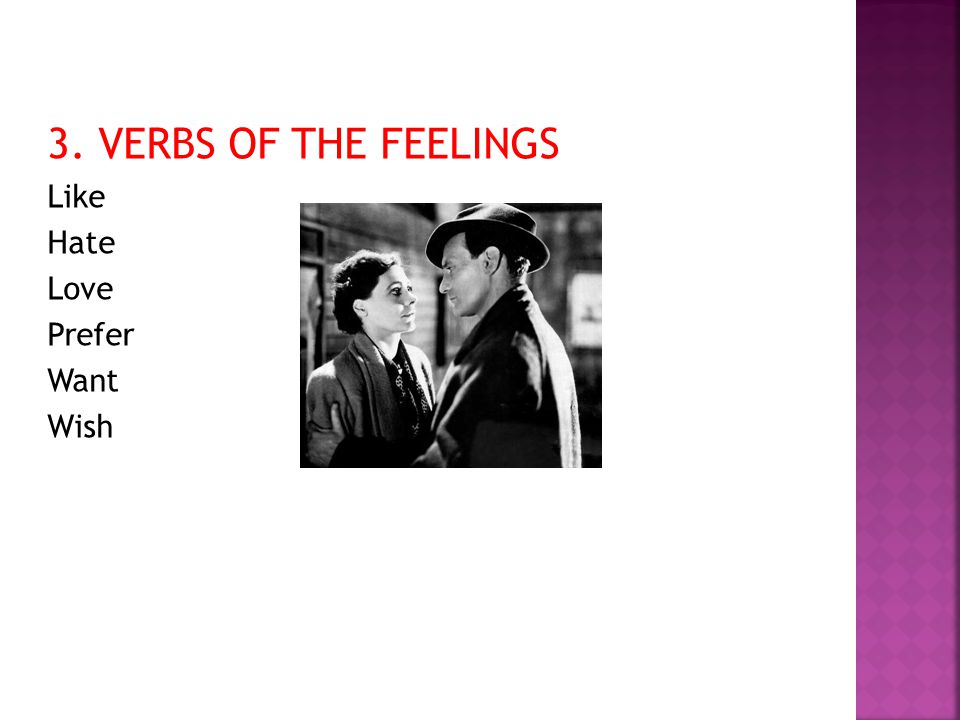 This is a superficial reason, common to different situations. More profound are other reasons related to our ability to interact with the people around us. This ability is developed differently for everyone, some of us are perfectly able to make enemies for ourselves, while others make friends. People who are too conflicted will more often create conditions for their own hatred of someone, and for someone else's hatred of themselves. But diplomatic people, I don’t say peaceful, but diplomatic people, respectively, they will not create such conditions, well, or they will create them in much smaller quantities, in special, so to speak, cases. For hatred, some kind of conflict is needed, either external, when people clash their foreheads in some matters, or internal, when a person cannot come to terms with the actions, position, achievements, views and beliefs of other people. When people do not know how to get along with each other, they will be at enmity and hate each other. Or the same envy - this is precisely an internal conflict that causes hatred for the one who is envied, because the envious person is not able to accept someone else's success, because he sees in it a certain damage to himself.
This is a superficial reason, common to different situations. More profound are other reasons related to our ability to interact with the people around us. This ability is developed differently for everyone, some of us are perfectly able to make enemies for ourselves, while others make friends. People who are too conflicted will more often create conditions for their own hatred of someone, and for someone else's hatred of themselves. But diplomatic people, I don’t say peaceful, but diplomatic people, respectively, they will not create such conditions, well, or they will create them in much smaller quantities, in special, so to speak, cases. For hatred, some kind of conflict is needed, either external, when people clash their foreheads in some matters, or internal, when a person cannot come to terms with the actions, position, achievements, views and beliefs of other people. When people do not know how to get along with each other, they will be at enmity and hate each other. Or the same envy - this is precisely an internal conflict that causes hatred for the one who is envied, because the envious person is not able to accept someone else's success, because he sees in it a certain damage to himself. nine0003
nine0003
Hatred appears where there is some kind of confrontation between people, some kind of struggle. And it is present in many ways, because we are naturally aimed at struggle and competition. The world in general is arranged in such a way that some people in it live at the expense of others, and this life law alone gives rise to a lot of situations when someone feels deprived, offended, offended, used, and so on, and sees the cause of these problems in other people. And this is often a well-founded opinion. There are always winners and losers in this life. Of course, those who lose, or feel like losers, often cannot accept the fact that someone has surpassed them, outplayed them, defeated them, suppressed them, used them. It pisses them off. And then the pattern already known to us, according to which, not being able to influence other people, to do something with them in revenge, because they are stronger, a person begins to hate them, experiencing hidden hostile feelings towards them. nine0003
nine0003
From the foregoing, we can conclude that a person’s limitations in the ways of achieving his goals and his inability to negotiate or, if necessary, fight more competently with other people leads him to a feeling of hatred, as the only feeling available to him, alternative to his open anger and aggression. After all, even if you have every reason to hate someone, then it is not at all necessary to do this, you can instead look for opportunities, either somehow outplay this person, defeat him, or somehow agree with him. Hatred is, in fact, a dead end, because it cuts off all these additional possibilities. Because of it, a person does not seek solutions to his problems with people, he prefers to be at enmity with them within himself. Thus, another reason for people's hatred of each other is their narrow-mindedness. nine0003
The feeling of hatred can also be the result of a person's strong dissatisfaction with himself. This is a deeper reason that is not always obvious. Being unprepared for life, for its harsh laws, for the rules that exist in human society, a person does not get what he wants and what he needs, he is too weak to manage even his own life, not to mention the ability to influence others of people. But since it is difficult and even dangerous to admit it, such thoughts can lead to severe depression, the person’s ego protects him from them, making him think that other people are so bad, evil, wrong, that the world is unfair to him, so he has everything so bad. Such a person will hate many, because he is dissatisfied with himself and his life, but he cannot hate himself, because the ego does not allow him to do this, as a result, hatred spreads to others. In the most severe cases, such people turn into chronic haters who are so offended by life and consider themselves weak and helpless [but do not admit it to themselves] so much that they hate almost everyone. They rage at their own helplessness, blaming the people around them for their problems. So hatred in this case, strange as it may sound, saves a person in a person, thanks to the ego, allowing him to appreciate and respect himself for not resigning himself to his fate as a victim and not even admitting his weakness and inability to live this life, but instead, he fights within himself with his many enemies, who, in his opinion, are to blame for all his failures.
But since it is difficult and even dangerous to admit it, such thoughts can lead to severe depression, the person’s ego protects him from them, making him think that other people are so bad, evil, wrong, that the world is unfair to him, so he has everything so bad. Such a person will hate many, because he is dissatisfied with himself and his life, but he cannot hate himself, because the ego does not allow him to do this, as a result, hatred spreads to others. In the most severe cases, such people turn into chronic haters who are so offended by life and consider themselves weak and helpless [but do not admit it to themselves] so much that they hate almost everyone. They rage at their own helplessness, blaming the people around them for their problems. So hatred in this case, strange as it may sound, saves a person in a person, thanks to the ego, allowing him to appreciate and respect himself for not resigning himself to his fate as a victim and not even admitting his weakness and inability to live this life, but instead, he fights within himself with his many enemies, who, in his opinion, are to blame for all his failures. Another thing is that there is no sense in such hatred, but the psyche endures such a struggle more easily than the bitter truth about one's own weakness. nine0003
Another thing is that there is no sense in such hatred, but the psyche endures such a struggle more easily than the bitter truth about one's own weakness. nine0003
Hatred can also arise from misunderstandings between people, when they misinterpret each other's words and actions. Because of this, they may see hostility and aggression in things that are not really there. This is one of the most common reasons why people hate each other. The problem is further aggravated by the fact that sometimes not understanding each other, people do not even strive to do this, since they do not even allow such a possibility that they can misunderstand someone. They believe in jumping to conclusions about other people's actions that arouse negative feelings in them and then succumb to these feelings, which ultimately lead them to hate. nine0003
I'll say even more. Not understanding someone and therefore writing him down as an enemy, especially when you are initially negatively disposed towards a person for one reason or another, is always easier than trying to understand him. Because in one case it is enough just to succumb to your feelings and let them rage inside you, and in the other, you need to strain your brains and think about what you see and hear. Understanding is a hard job to do, and hatred is an easy path that anyone can take. But if you help a person to understand everything, to understand the one whom he hates, then in this way you can weaken his feeling of hatred or completely dissolve it in common sense. nine0003
Because in one case it is enough just to succumb to your feelings and let them rage inside you, and in the other, you need to strain your brains and think about what you see and hear. Understanding is a hard job to do, and hatred is an easy path that anyone can take. But if you help a person to understand everything, to understand the one whom he hates, then in this way you can weaken his feeling of hatred or completely dissolve it in common sense. nine0003
One cannot but mention selfishness, because of which people can harm each other and thus create grounds for the emergence of hatred. Selfish people, taking advantage of the opportunities that arise in them, begin to do too much just for themselves, while depriving others in many ways. And in this world you can't do that if you don't want to make enemies. Everyone wants to live as well as possible, so reasonable people take into account the interests of others, for their own sake, first of all, for the sake of their peace and comfort. Egoists, whose selfishness is unreasonable, are too short-sighted, they row under themselves, without thinking about the consequences. Well, take, for example, a person who has power, and therefore the power that he can use to satisfy his needs and desires, regardless of other people. And they, these other people, suffer, get angry at such a person, but are afraid to speak out against him, so their anger, as already mentioned above, remains inside them and becomes hatred. It would seem, what kind of problems does someone who is so hated by others, but cannot do anything to him? Well, a person is angry with you, wishes you harm, and all the same, he is afraid to do something to you, because he is weaker than you. So you can ignore his anger and hatred. No, it is not advisable to do so. Not everything is so simple in this world and ignoring someone else's self-hatred is a dangerous business. You never know whose help, support or whose neutrality in some conflicts you may need in the future, but you will never get them if the person hates you.
Egoists, whose selfishness is unreasonable, are too short-sighted, they row under themselves, without thinking about the consequences. Well, take, for example, a person who has power, and therefore the power that he can use to satisfy his needs and desires, regardless of other people. And they, these other people, suffer, get angry at such a person, but are afraid to speak out against him, so their anger, as already mentioned above, remains inside them and becomes hatred. It would seem, what kind of problems does someone who is so hated by others, but cannot do anything to him? Well, a person is angry with you, wishes you harm, and all the same, he is afraid to do something to you, because he is weaker than you. So you can ignore his anger and hatred. No, it is not advisable to do so. Not everything is so simple in this world and ignoring someone else's self-hatred is a dangerous business. You never know whose help, support or whose neutrality in some conflicts you may need in the future, but you will never get them if the person hates you.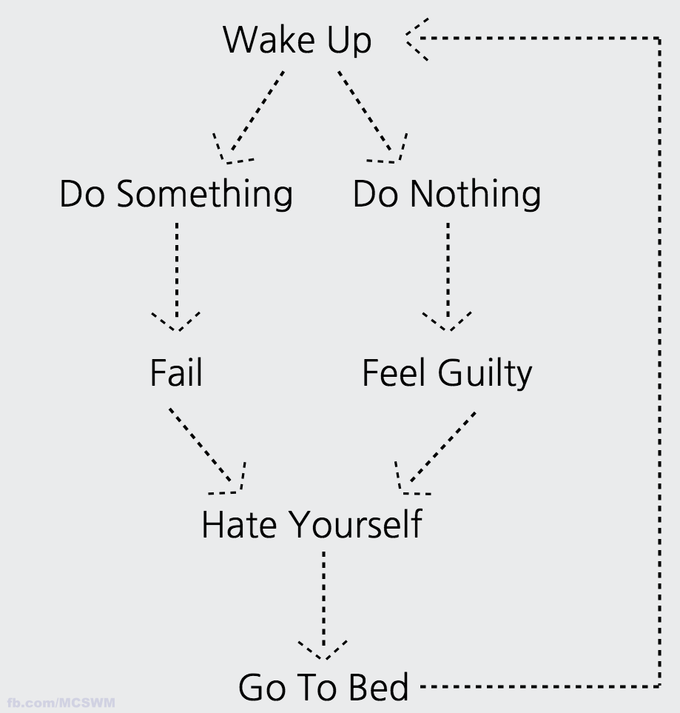 He will be glad of the opportunity to somehow harm you because of his negative feelings, including speaking on the side of your stronger enemy. nine0003
He will be glad of the opportunity to somehow harm you because of his negative feelings, including speaking on the side of your stronger enemy. nine0003
Deeper grievances and traumas, and therefore often unconscious to people, are another reason why people hate each other. And often they hate those who absolutely do not deserve such an attitude towards themselves. For example, a person in childhood was offended, humiliated, insulted, suppressed by his parents, and because of this he grew up offended and embittered, and therefore he perceives any imaginary disrespect for himself, any careless actions on the part of other people as hostile and thus creates the basis for hate. Such a person may hate his wife or husband, not because she or he did something bad to him that deserves hatred, but because in childhood this person was often offended and all these insults, all the anger associated with them, interferes with him objectively. perceive reality. Here there is a transfer of old grievances to new people, on whom a person wants [usually because he can] throw out the aggression accumulated in him. But in the absence of the opportunity to do this, people can be stronger than him or he can depend heavily on them, he, as we already know, shows aggression in the form of hatred, that is, inside himself. And how much of any negativity accumulates in a person during his life, not being able to either splash out or think about it properly so as not to poison his soul and not cause unjustified or inappropriate aggression against the people around him? So many. Psychologists with such accumulated negativity constantly encounter people in their work. Very often, such negativity originates at work, where a person can experience severe stress due to the attitude towards him from the authorities, who squeeze all the juice out of him for their own benefit. And then the person brings this negativity home, splashes it out on his relatives there, then from home the negative spreads further to relatives, friends, casual acquaintances, and so on. This is how anger is transferred from person to person and turns into someone's hatred.
But in the absence of the opportunity to do this, people can be stronger than him or he can depend heavily on them, he, as we already know, shows aggression in the form of hatred, that is, inside himself. And how much of any negativity accumulates in a person during his life, not being able to either splash out or think about it properly so as not to poison his soul and not cause unjustified or inappropriate aggression against the people around him? So many. Psychologists with such accumulated negativity constantly encounter people in their work. Very often, such negativity originates at work, where a person can experience severe stress due to the attitude towards him from the authorities, who squeeze all the juice out of him for their own benefit. And then the person brings this negativity home, splashes it out on his relatives there, then from home the negative spreads further to relatives, friends, casual acquaintances, and so on. This is how anger is transferred from person to person and turns into someone's hatred. Initially, such evil can appear in one place, at the same job where the boss exploits the subordinate, and then hatred will arise in another place, for example, in a child to his father, who, having come angry from work, plucked evil on him. The child cannot answer, because he is weaker and because he depends on his father, so he begins to hate him, showing aggression towards his father inside himself. nine0003
Initially, such evil can appear in one place, at the same job where the boss exploits the subordinate, and then hatred will arise in another place, for example, in a child to his father, who, having come angry from work, plucked evil on him. The child cannot answer, because he is weaker and because he depends on his father, so he begins to hate him, showing aggression towards his father inside himself. nine0003
Hatred, like a dormant volcano, slumbers in a person until the time comes for it to break out in the form of already open aggression against the one he hates. And the trigger may be the weakening of the object of hatred or the acquisition of strength by a person who experiences this feeling, thanks to which he has the opportunity to make hidden aggression open. So, in particular, people take revenge on each other when, having gained strength, they get the opportunity to recall old grievances to the offender. nine0003
Separately, I would like to say about the hatred that arises in relationships between partners. This is the problem that we, psychologists, have to face most often. Men with women and women with men quite often live like cat and dog. It is not abnormal if their bickering does not turn into a very violent confrontation with each other, with the desire to cause serious harm to a partner. Because quarrels in the family are more an indicator that healthy, natural relationships prevail in it, which need a shake-up from time to time, and not an indicator that everything is not in order in this family. But hatred at the same time can accumulate for years. Often partners, spouses cannot agree with each other in any way, and this leads to enmity between them, which may be of a latent [hidden] nature and nurture hatred for each other in their hearts, or it may be the hatred of one partner who considers himself especially disadvantaged, to another, who in the relationship takes a stronger position. That is, the weakness of one of the partners makes him feel hatred for the person to whom he cannot do anything, therefore he is forced to endure him.
This is the problem that we, psychologists, have to face most often. Men with women and women with men quite often live like cat and dog. It is not abnormal if their bickering does not turn into a very violent confrontation with each other, with the desire to cause serious harm to a partner. Because quarrels in the family are more an indicator that healthy, natural relationships prevail in it, which need a shake-up from time to time, and not an indicator that everything is not in order in this family. But hatred at the same time can accumulate for years. Often partners, spouses cannot agree with each other in any way, and this leads to enmity between them, which may be of a latent [hidden] nature and nurture hatred for each other in their hearts, or it may be the hatred of one partner who considers himself especially disadvantaged, to another, who in the relationship takes a stronger position. That is, the weakness of one of the partners makes him feel hatred for the person to whom he cannot do anything, therefore he is forced to endure him. nine0003
nine0003
What is the most important thing about this problem? The most important thing, in my opinion, is a primitive approach to relationships, when people consider each other only if they are forced to do so by some force, and not because they respect each other. For example, the need for another person forces his partner to reckon with him. Instead of doing it out of love and respect for him, or at least out of a desire to have a stable, comfortable relationship. That is, at the heart of such problems with hatred in a relationship, there is a consumer or exploitative approach to them, and not a desire to enjoy relationships and cooperate on an equal footing with your partner. Therefore, only fear makes people reckon with each other. Roughly speaking, a man is afraid of losing a woman or a woman a man, and only because of this does not allow himself too much in a relationship, that is, he does not become impudent. And in this case, partners consider each other, thinking about what they can lose if they lose each other or if one person loses the other because of their selfishness and greed.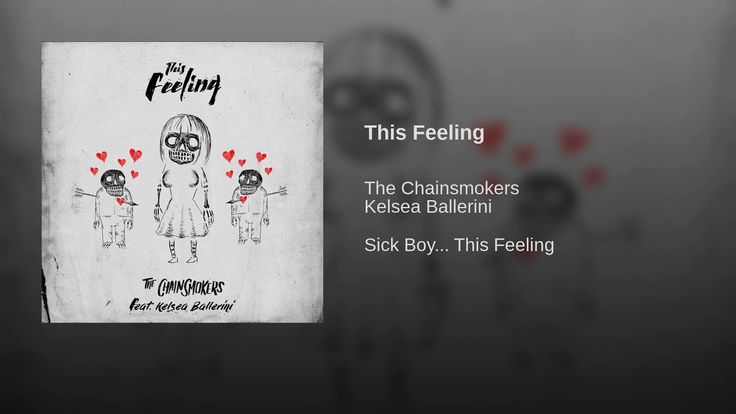 That's the problem. Initially, relationships are built on an aggressive and selfish basis, when a person thinks too much about himself and too little about the other. I, me, mine, I want, but what the partner needs is not important, he is silent, then everything is fine, you can not think about him at all. Well, how can there not be deep resentment and anger when someone considers himself deprived? In fact, people tend to parasitize on each other and for this they enter into such relationships that they don’t really want to invest in, they only want to get something from them. They don’t have such a thing that it’s just good, comfortable, interesting with a person, and for this respect arises for him, which in turn does not allow you to do something only for yourself and to the detriment of him. And when people, like exploiters, are only looking for an opportunity to make themselves better at the expense of another, in particular at the expense of a partner, they only understand and recognize strength.
That's the problem. Initially, relationships are built on an aggressive and selfish basis, when a person thinks too much about himself and too little about the other. I, me, mine, I want, but what the partner needs is not important, he is silent, then everything is fine, you can not think about him at all. Well, how can there not be deep resentment and anger when someone considers himself deprived? In fact, people tend to parasitize on each other and for this they enter into such relationships that they don’t really want to invest in, they only want to get something from them. They don’t have such a thing that it’s just good, comfortable, interesting with a person, and for this respect arises for him, which in turn does not allow you to do something only for yourself and to the detriment of him. And when people, like exploiters, are only looking for an opportunity to make themselves better at the expense of another, in particular at the expense of a partner, they only understand and recognize strength. And only she can stop them from excessive arrogance. And this strength is basically the loss of a partner, so in many ways the partner who needs this relationship most of all is more compliant. But this compliance can be accompanied by a strong hatred for another person whom he does not want to lose, but cannot oppose his egoism in order to force him to take into account his own interests. nine0003
And only she can stop them from excessive arrogance. And this strength is basically the loss of a partner, so in many ways the partner who needs this relationship most of all is more compliant. But this compliance can be accompanied by a strong hatred for another person whom he does not want to lose, but cannot oppose his egoism in order to force him to take into account his own interests. nine0003
In this way, resentment against their partner arises, accumulates and transforms in various ways. Sometimes they lash out at him, telling him everything they think about him, and if this is not possible, then these insults turn into hatred for the person and this hidden aggression can also break out at one fine moment in the form of decisive and / or very aggressive actions. That is, it can lead to the violence of one person over another, in this case, a partner, or to the fact that someone leaves someone. Moreover, the last straw that overflowed the cup of a person’s patience can be some insignificant trifle, for example, some offensive word of a partner or some of his petty misconduct, from which, with all the desire, you can’t inflate an elephant, but by connecting with the already existing huge mass of all kinds of insults , intertwined with each other and because of the negative experiences that created new grievances, this trifle can play a decisive role in the fate of the relationship. And only a very naive person can believe that he was attacked by a partner or contributed to his departure, just because he put some thing in the wrong place or oversalted the soup. Naturally, the matter is in all the past grievances and anger that have accumulated in his partner for many years and ultimately broke through his patience, giving vent to his feeling of hatred, which turned from hidden aggression into open. nine0003
And only a very naive person can believe that he was attacked by a partner or contributed to his departure, just because he put some thing in the wrong place or oversalted the soup. Naturally, the matter is in all the past grievances and anger that have accumulated in his partner for many years and ultimately broke through his patience, giving vent to his feeling of hatred, which turned from hidden aggression into open. nine0003
How to deal with hatred
If you feel hatred for someone, then without studying the history of its occurrence, you will not be able to cope with it. When it was born, it gave rise to strong beliefs in you regarding the object of hatred, which only strengthened over time if the one you hate did not improve your attitude towards yourself in some way. Most often this does not happen, because hatred overshadows a person's eyes, he stops seeing something good in the one he hates. We humans are generally inclined to collect all the bad or all the good in one place, that is, in this case, you will see the one you hate mainly or exclusively in a negative light, stubbornly not noticing the good and willingly appropriating everything bad to him. And since your capabilities do not allow you to punish this person or somehow influence him, for all the bad things that he did to you or that he has, your hatred for him will accumulate. And it is very difficult to rationalize this hatred, to understand its meaning, to reconsider one's attitude to its origins without studying its entire history. This is what needs to be done, and we do it with people whom I help to cope with their feelings of hatred. We are looking for the very first reason because of which it arose, and then we gradually move from it to the current state of a person and to his current life, in which this hatred may no longer be relevant at all. Sometimes this feeling is transformed not because of objective factors, that is, the one whom a person hates does not do anything bad to him, but solely because of the fantasies of the hater, who lives with a feeling of resentment and anger, and does not know what to do with them. In the end, all the bumps fall on the one he hates.
And since your capabilities do not allow you to punish this person or somehow influence him, for all the bad things that he did to you or that he has, your hatred for him will accumulate. And it is very difficult to rationalize this hatred, to understand its meaning, to reconsider one's attitude to its origins without studying its entire history. This is what needs to be done, and we do it with people whom I help to cope with their feelings of hatred. We are looking for the very first reason because of which it arose, and then we gradually move from it to the current state of a person and to his current life, in which this hatred may no longer be relevant at all. Sometimes this feeling is transformed not because of objective factors, that is, the one whom a person hates does not do anything bad to him, but solely because of the fantasies of the hater, who lives with a feeling of resentment and anger, and does not know what to do with them. In the end, all the bumps fall on the one he hates. This person or these people [evil to evil] are to blame for everything, and he hates him or them even more. It is this thickening of hatred that needs to be got rid of, separating its true cause from far-fetched reasons. nine0003
This person or these people [evil to evil] are to blame for everything, and he hates him or them even more. It is this thickening of hatred that needs to be got rid of, separating its true cause from far-fetched reasons. nine0003
I won't say that it is necessary to get rid of hatred as an extremely harmful and destructive feeling. Not everything is so simple in this world to accept one thing in it and reject the other, and think that this is enough for a comfortable and successful life. There is also a benefit from hatred, and in part I have already shown it above. It allows a person to fight for his interests, forcing him not to put up with what harms him. This is a sobering feeling that, although it can intoxicate itself, nevertheless does not allow a person to turn into a whipping boy [or girl], with whom you can do whatever you want. But the methods of struggle can be different, they can be uncontrollable, when a person, because of hatred for someone, commits extremely rash acts that have negative consequences, including for himself. Or they can be extremely thoughtful, when a person uses his hatred as a motivation, but makes decisions on a cold head, skillfully coping with his offenders and enemies whom he hates. We are also working with people on this ability to transform hatred into constructive actions. Together with them, we are looking for a more reasonable way out of their hatred, so that it does not suddenly burst out in the form of emotional actions and primitive decisions when the cup of a person’s patience is overflowing, but calmly and evenly come out of him in the form of thoughtful and useful actions that alleviate his condition. nine0003
Or they can be extremely thoughtful, when a person uses his hatred as a motivation, but makes decisions on a cold head, skillfully coping with his offenders and enemies whom he hates. We are also working with people on this ability to transform hatred into constructive actions. Together with them, we are looking for a more reasonable way out of their hatred, so that it does not suddenly burst out in the form of emotional actions and primitive decisions when the cup of a person’s patience is overflowing, but calmly and evenly come out of him in the form of thoughtful and useful actions that alleviate his condition. nine0003
And I also want to say that hatred cannot be ignored. Otherwise, it will go from hatred of someone to a person's hatred of himself. And then he will either harm himself in the end, or turn into an absolutely weak-willed and unviable creature, not ready for any struggle for his interests. I call this the victory of evil over the human personality. To prevent this from happening, one must work with hatred, not extinguish it, not express it in the form of aggression, namely, work, as mentioned above, study it and competently release it from a person. nine0003
nine0003
Now about what to do with someone else's hatred. If someone hates you, it is as much a problem as your hatred of another person. After all, who knows when your hater will have the opportunity to harm you. You can be sure he will use them. Therefore, the first step is to identify someone else's self-hatred, paying attention to how people treat you, what they say to you or about you, whether they are afraid of you, because people often hate exactly those who are afraid, but do not show it . Be more attentive to people, many of their resentment and anger can be seen, most people do not hide their feelings well and in conversations they can somehow mention their dissatisfaction with you, even in a joking way, but some kind of reproach against yours will surely break from their tongues. the address. You have to be careful about this. Then you need to talk with this person, learn more about him, about his life, in order not to directly find out, here you are most likely to be deceived, but to guess from his problems, difficulties, desires, whether the person really hates you or not and why he hates you . After all, as I already said, we can accidentally offend, insult, deprive someone of something because of our inattention and ignorance, and the person will hate us, and we won’t even know it. And then the hatred grows, changes, the root cause is forgotten, the negative accumulates, attitudes towards you worsen and the person begins to wish you harm, sometimes completely unreasonably. Well, if he can't understand it, you understand it. nine0003
After all, as I already said, we can accidentally offend, insult, deprive someone of something because of our inattention and ignorance, and the person will hate us, and we won’t even know it. And then the hatred grows, changes, the root cause is forgotten, the negative accumulates, attitudes towards you worsen and the person begins to wish you harm, sometimes completely unreasonably. Well, if he can't understand it, you understand it. nine0003
Therefore, in order to identify a possible misunderstanding and all sorts of insults, you need to communicate with people whom you suspect of hating you. This can be understood by their coldness, avoidance of you, or, conversely, by excessive obsequiousness, when they grease up on you in order to get to know you better, in order to later use your weaknesses against you. Only through sincere and interested communication with people can you know for sure that a person hates you. And once you understand that, you can move on to the next step. And this is, no, not a showdown with this person, not an attempt to find out something from him and explain something to him himself, all this only hinders the normalization of his attitude towards you. It is necessary, firstly, to correct your mistakes, which you will find if you remember everything that you did recently or a little earlier, which in one way or another had to do with this person. And secondly, you just need to bribe this person with something good, in the broadest sense of the word, that is, allow him to get some benefit thanks to you, so that good impressions of you block the negative that caused him hate for you. Sometimes it's not that hard to do. People willingly change their minds about the person who gives them something good. In this sense, we are quite practical, unconsciously practical, because we succumb to positive emotions that are associated with the benefits received and forget old grievances. nine0003
It is necessary, firstly, to correct your mistakes, which you will find if you remember everything that you did recently or a little earlier, which in one way or another had to do with this person. And secondly, you just need to bribe this person with something good, in the broadest sense of the word, that is, allow him to get some benefit thanks to you, so that good impressions of you block the negative that caused him hate for you. Sometimes it's not that hard to do. People willingly change their minds about the person who gives them something good. In this sense, we are quite practical, unconsciously practical, because we succumb to positive emotions that are associated with the benefits received and forget old grievances. nine0003
Most people can be bribed, thus neutralizing their negativity towards themselves. I'm not talking about just taking and giving a person who hates you money or some kind of property in order to buy his respect and love, or at least a neutral feeling towards you. Although people do this, they simply buy haters and they change their opinion about them for the better. But first of all, I’m talking about finding ways to please a person, at the expense of some benefits, concessions, privileges, just getting closer to him, so that he gets to know you better, understands you better, shares some ideas, feelings, thoughts, problems with you. so that you have some kind of joint business, then his attitude towards you will quickly change, it will become the way you make it yourself. nine0003
Although people do this, they simply buy haters and they change their opinion about them for the better. But first of all, I’m talking about finding ways to please a person, at the expense of some benefits, concessions, privileges, just getting closer to him, so that he gets to know you better, understands you better, shares some ideas, feelings, thoughts, problems with you. so that you have some kind of joint business, then his attitude towards you will quickly change, it will become the way you make it yourself. nine0003
One of our main problems, I mean people, is that we often focus too much on ourselves and pay unacceptably little attention to others. Because of this, we, let's say, may not be careful enough with each other and even without any malicious intent are able to cause harm and suffering to each other. This breeds resentment, anger and ultimately hatred. Of course, people long ago learned to live with such hatred, carrying it in themselves and allowing others to hate themselves.